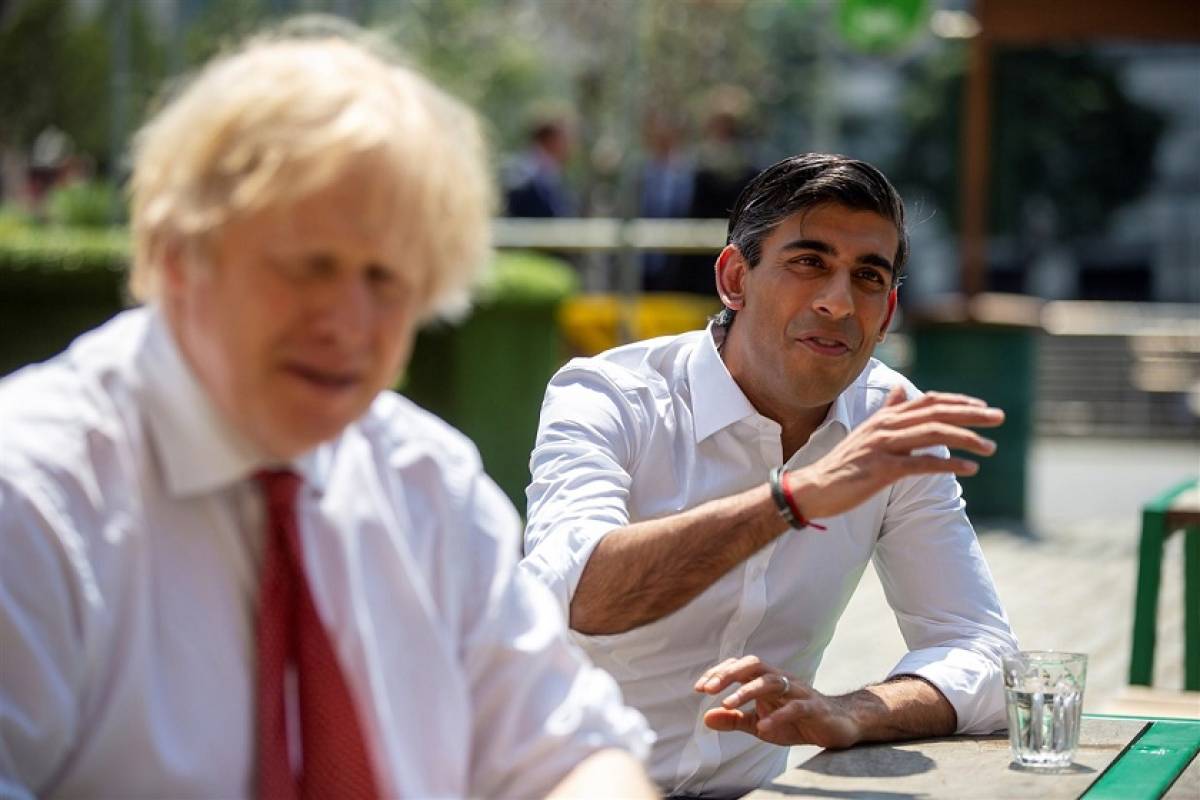UK Finance Minister Promises a £4.3bn Package to Help Jobless Back to Work

Britain's Prime Minister Boris Johnson and Chancellor Rishi Sunak visit a pizza restaurant in London in June. Some political commentators are tipping Sunak to succeed Johnson, who many believe has fumbled the response to the pandemic. Heathcliff O'Malley / Reuters file
The UK Chancellor of the Exchequer Rishi Sunak is promising a £4.3bn (approx. $5.7bn) package to help hundreds of thousands of jobless back to work as he prepares to unveil his Spending Review.
Rishi, who has been a shining light for many during the coronavirus pandemic thanks to his reforms as Chancellor of the Exchequer since February 2020, said in an announcement ahead of Wednesday's review that it would include £2.9bn (approx. $3.9bn) for a new Restart jobs scheme and £1.4bn (approx. $1.86bn) to expand the Jobcentre Plus agency.
In his Commons statement, the Chancellor was expected to announce the launch of a three-year Restart programme, which will help more than a million unemployed people get back into work in the wake of the pandemic.
While business leaders have broadly welcomed the moves to support jobs, the Chancellor is bracing for a backlash from trade unions over an expected freeze on public sector pay as he begins to repair public finances.
Justin Small, CEO and Founder of The Future Strategy Club, commented on the planned announcement:
“This £2.9bn programme to help a million unemployed people back into work is, of course, a positive move for the majority of the people in the economy.
The Institute of Government estimated that four million people would be unemployed at the end of this year and while we haven’t hit those figures, the Office for Budget Responsbility still anticipate high levels of unemployment at some point next year as government support is withdrawn.
But as well as this employment scheme, support needs to continue for freelancers, self-employed and consultants alike as we head into 2021 and beyond. Particularly in sectors like the creative industries, which is worth around £111.7bn, people need to be encouraged and supported to enter these sectors to rebuild the industry, create real value in the market and get these parts of the economy moving again.
At The Future Strategy Club, we have seen a vast uptake in people wanting to start a new, either by jumping into a freelance via a supportive environment like the FSC or to set up their own business. Therefore, the government needs to keep the incentives open to these people to be brave and go it alone, allowing companies to take on other people who don’t have the ability to start their own businesses, increase the number of businesses contributing to the economy and open the market up to new and exciting creatives who, pre-COVID, may not have had the ability to properly demonstrate their skills in a large organization.”
The chancellor of the exchequer, an antiquated official title of what is equivalent to a finance minister in other countries, responsible for all economic and financial matters, has said the government was dealing with an "economic emergency."
"That's why we have taken, and continue to take, extraordinary measures to protect people's jobs and incomes," he said.

![9 Tips for Managing Your Online Writing Projects Efficiently [node:titile]](/sites/default/files/styles/thumbnail_rectangle/public/open-book-laptop-online-writing-tips.jpeg?itok=iq4PIT7b)


















